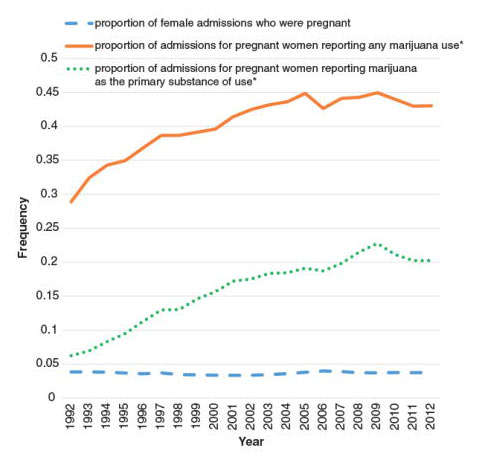Background: Increasing rates of marijuana use and high rates of depression among females are major public health concerns and ambiguous study results suggest a complex association between the two. Inconsistent findings may be due to differences in sample characteristics (e.g., females vs. males) and result from differences in the relationship over time (i.e., across developmental stages). Objectives: Presently, the extent to which the relationship between depression and marijuana use differed for females in emerging adulthood, compared to young adult females, was examined. Methods: Two hundred forty females (mean age = 23.9 ± 3.4 years) from low-income urban neighborhoods completed a semi-structured HIV-risk interview, Beck’s Depression Inventory II, and provided a urine sample that was tested for the presence of psychoactive drugs. Results: Approximately 35% tested positive for marijuana and 21% were experiencing depression. Results from unadjusted logistic regression analyses indicated a relationship between depression and marijuana use (OR = 2.1; 95% CI = 1.08–3.93). African Americans had higher odds of testing positive for marijuana, compared to Whites (OR = 4.6; 95% CI = 2.52–8.68). In the full model, the relationship between depression and marijuana use did not differ by developmental stage. Conclusions: Interventions aimed at reducing depression may prove beneficial for decreasing marijuana use among females between 18 and 29 years of age residing in disadvantaged communities. However, more research is needed to identify risk factors for marijuana use and to explicate the relationship between marijuana use and depression. Special consideration should be given to African American females.
credit:tandfonline.com

